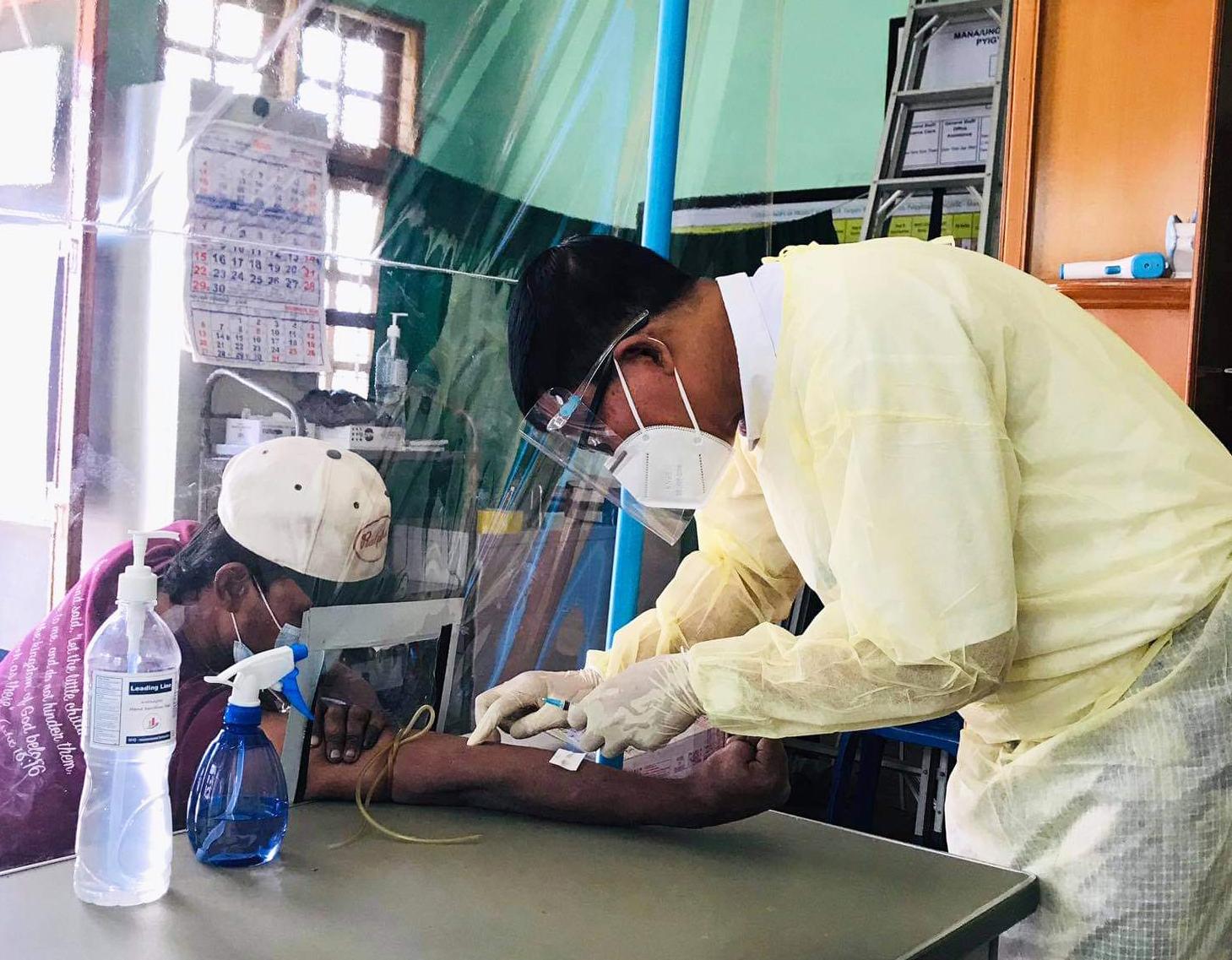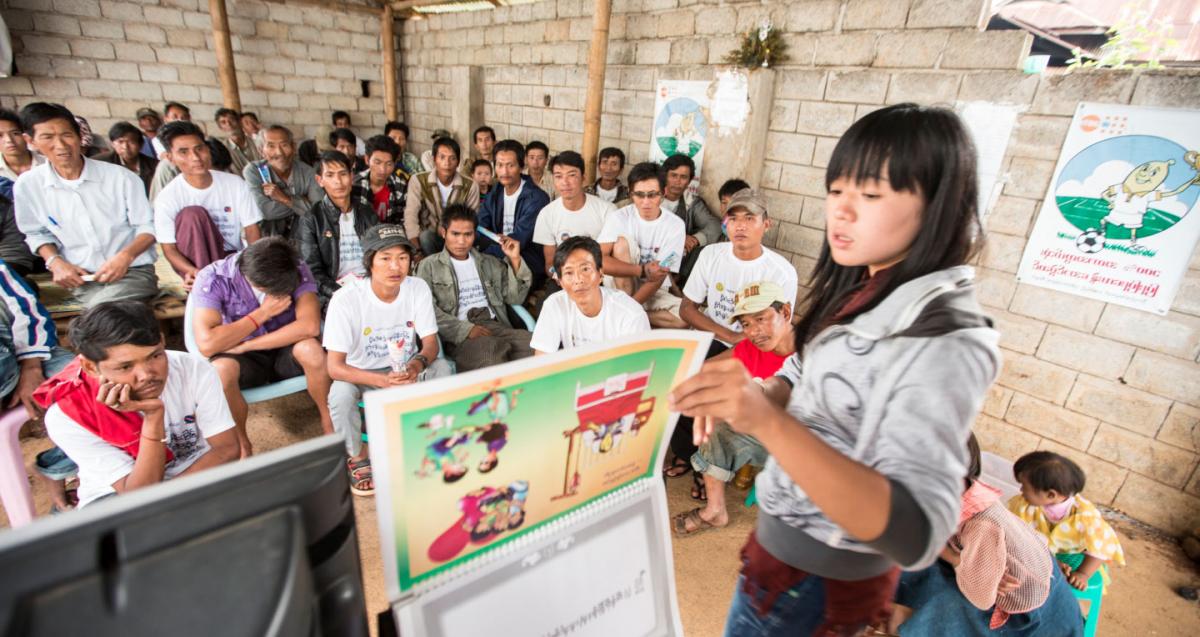In the wake of the COVID-19 pandemic in Myanmar, PR-UNOPS and its Sub-recipients are working together to ensure that the control efforts for HIV, TB and malaria are not neglected and stay on the agenda. MANA also continues to maintain HIV prevention, care and treatment services while undertaking COVID-19 infection control measures.
As a peer educator, Min Min Naing is responsible for disseminating health education and information among drug users and distributing condoms and sterile needles and syringes to them. During the COVID-19 period, he has been assigned to work in shifts, to practise social distancing at the MANA KSC. He delivers health education about blood testing for HIV and hepatitis B and C to his peers via phone and advises them to visit the centre to get tested as necessary.
While delivering services such as blood testing and provision of condoms, needles and syringes, the centre practises protective measures against COVID-19. The staff are equipped with face masks and gloves, while services are provided with physical distancing measures, such as through a glass partition between the two parties.
Min Min Naing also has to explain to the clients that the services are not suspended during this time and they can receive condoms and sterile needles and syringes at the centre any time they want.
“It is very important to spread the knowledge about the risk of needle sharing at a time of crisis like this, where clients cannot go outside freely to get sterile needles and syringes due to movement restrictions, and that in turn will increase the risk of spread of infections from using contaminated needles and syringes,” he said.
“We make sure not to let that happen by trying our best to provide them sterile needles and syringes as well as alcohol swabs as they require,” he added.
In addition, as a peer educator, he has to provide counselling about methadone maintenance therapy (MMT) to the clients and also refer them to the MMT centre if they are willing to receive it, and provide them all the essential support to get the treatment.
“Service delivery is getting tougher during this COVID-19 outbreak, but that doesn’t mean we stop trying to continue providing our services to those in need. I will try my very best to support in delivering those services and help our clients build better lives,” he said.



